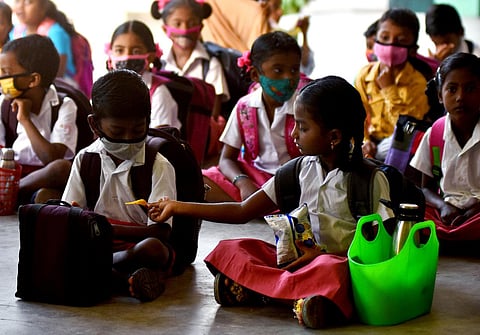

BHUBANESWAR: Over 34,000 seats under Right to Education Act for children (6 to 14 years) from economically weaker sections (EWS) of society in Odisha are currently without any takers. The School and Mass Education department is now conducting the second round of admission to these seats, and according to the official reports, just about 7,000 seats have been filled up so far.
Under the Section 12(1) (c) of RTE Act, private schools must reserve 25 per cent of their seats for children belonging to EWS from the neighbourhood. Out of these, 10 per cent is reserved for scheduled castes and scheduled tribes students, another 10 per cent for children from BPL families besides, five per cent for children without a home.
To bring more transparency in the admission process, the RTE-Paradarshi portal was launched last year by the department to conduct the admissions online. As per the portal, the total schools under RTE are 4,440 and seats available in them are 41,006.
Higher officials in the Odisha School Education Programme Authority (OSEPA) said that to improve the EWS enrollment, a third round of admission will be done this year with a target to enroll at least 15,000 students. "If the seats fall vacant after the third round, the State government will be approached to take a call on it," said deputy director Chitta Ranjan Panigrahi.
Last year, 5,000 students had taken admission to these seats after two rounds. Prior to the online enrollment system, less than 2,000 EWS students were getting into private schools under RTE. In 2019, there were only 900 admissions.
Academicians said although the government is taking care of tuition fees of EWS students in private schools, it does not take into consideration the other ancillary fees, be it uniform cost or cost of participating in cultural events, debates, etc.
The government provides only Rs 12,000 per student annually to the schools, which is far lower than that general students pay. Child rights activist Ghasiram Panda said many marginalised children fear getting into private schools because they either cannot afford the ancillary expenses or face discrimination from teachers and co-students.